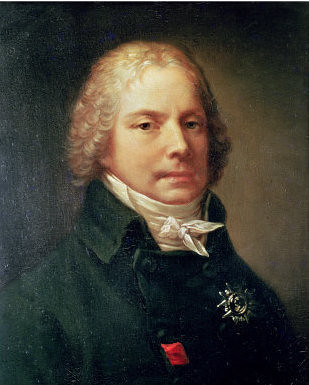The Greed That Toppled an Empire

Sam Bankman-Fried was sentenced to 25 years in prison by a judge on Thursday for stealing $8 billion from customers of the now-bankrupt FTX cryptocurrency exchange he founded, the last step in the former billionaire wunderkind’s dramatic downfall. The government relied heavily on the testimony of three former members of Bankman-Fried’s inner circle, his top executives including his former girlfriend, Caroline Ellison, to explain how Bankman-Fried used Alameda Research to siphon billions of dollars from customer accounts at FTX. With that money, prosecutors said, the Massachusetts Institute of Technology graduate gained influence and power through investments, contributions, tens of millions of dollars in political contributions, Congressional testimony and a publicity campaign that enlisted celebrities like comedian Larry David and football quarterback Tom Brady. Kaplan said Bankman-Fried has shown no remorse. “He knew it was wrong,” Kaplan said. “He knew it was criminal. The modern era has witnessed betrayals driven by forces that our ancestors couldn’t have imagined. He thought the rules did not apply to him. He thought that he could get away with it,” prosecutor Danielle Sassoon told the jury on Thursday.
When Constitutional Duty Collides with Institutional Loyalty

Reflecting on his decision to go public with classified information, Edward Snowden says, “The likeliest outcome for me, hands down, was that I’d spend the rest of my life in an orange jumpsuit, but that was a risk that I had to take.” Courtesy of Edward Snowden hide caption toggle caption Courtesy of Edward Snowden · Reflecting on his decision to go public with classified information, Edward Snowden says, “The likeliest outcome for me, hands down, was that I’d spend the rest of my life in an orange jumpsuit, but that was a risk that I had to take. The oath of allegiance is not an oath of secrecy,” he said. “That is an oath to the Constitution. That is the oath that I kept that Keith Alexander and James Clapper did not.” In many ways, 2013 wasn’t about surveillance at all. What it was about was a violation of the Constitution.” I am not trying to bring down the NSA, I am working to improve the NSA,” he said. “I am still working for the NSA right now. They are the only ones who don’t realize it.” Snowden’s betrayal wasn’t motivated by money or personal gain, but by what he perceived as a higher calling to protect constitutional rights. Yet despite the fact that he broke the law, Snowden argued that he had a moral obligation to act. He gave a justification for his “whistleblowing” by stating that he had a duty “to inform the public as to that which is done in their name and that which is done against them.”
The Price of Ambition in Ancient Rome

The story of Brutus’ betrayal of Julius Caesar is literally Shakespearean in its drama. Once a close ally, Brutus became part of the conspiracy to assassinate Caesar in 44 BC, convinced that his former mentor’s death was necessary to save Rome from tyranny. But Brutus’ betrayal was fueled by complicated concerns for the Roman republic. A beloved friend of Caesar, Brutus opposed the ascension of any single man to the position of dictator, and he feared his dear friend aspired to such power. Brutus’ inflexible sense of honor made it easy for Caesar’s enemies to manipulate him into believing that Caesar had to be killed for the republic to survive. This betrayal shows how political idealism can override personal loyalty. In the end, the story of Marcus Brutus is the story of the complexities of human choices. The “noblest of Romans” ultimately betrayed his friend because he loved the republic more. This betrayal is often cited as a classic example of how personal relationships can be overshadowed by political ambition. The phrase “Et tu, Brute?” has become synonymous with betrayal, emphasizing the shock and emotional weight of Brutus’s actions. This event marked a turning point in Roman history, leading to a series of civil wars.
The Cold War’s Most Devastating Double Agent

In 1985, CIA officer Aldrich Ames began spying for the Soviet Union, betraying his country in a devastating way. His actions compromised dozens of agents, leading to the deaths of several operatives and causing significant harm to American intelligence. Astonishingly, Ames’ betrayal went undetected for nearly a decade. Hanssen was a former FBI agent who willingly approached the GRU, the Soviet military intelligence agency, and offered his services for money. He sold most of the CIA’s information and assets to Russia over 22 years in exchange for more than 1.4 million US dollars and diamonds. His betrayal was described as “perhaps the worst intelligence disaster in US history”, and earned him a life sentence. Money, not ideology, drove these betrayals. The psychological research tells us that financial motivation creates a particularly toxic form of betrayal because it reduces human lives to mere transactions. These cases demonstrate how greed can transform trusted guardians into instruments of destruction.
When Love Becomes a Weapon

Research question 44 reveals self-reported negative consequences significantly impacting the betrayed partner’s physiological, psychological, and behavior states and actions. Seventy-six percent of betrayed partners answered yes when asked, “After discovering you were betrayed, did you express your anger in a manner that was unusual for you such as swearing, yelling, hitting, throwing things, etc.” Nine percent of partners reported feeling like their anger was out of control all the time and 42% responded yes to their anger feeling out of control some of the time. Betrayal trauma, or trauma perpetrated by someone with whom a victim is close, is strongly associated with a range of negative psychological and physical health outcomes. However, few studies have examined associations between different forms of trauma and emotional and physical symptoms. The present study compared betrayal trauma to other forms of trauma as predictors of young adults’ psychological and physical symptoms, and explored potential mediators. Betrayal is the sense of being harmed by the intentional actions or omissions of a trusted person. The most common forms of betrayal are harmful disclosures of confidential information, disloyalty, infidelity, dishonesty. They can be traumatic and cause considerable distress. The effects of betrayal include shock, loss and grief, morbid pre-occupation, damaged self-esteem, self-doubting, anger.
The Psychology of Self-Preservation

Previous studies have found that betrayal increases negative attentional bias and hinders executive control. However, it remains unclear how betrayal influences emotional modulation of executive control. What’s more, according to the dual mechanisms of control model, executive control can be divided into reactive and proactive control. Causal attributions have been identified as a key cognitive factor underlying responses to betrayal (Chan, 2009; Dirks, Lewicki, & Zaheer, 2009; Tomlinson & Mryer, 2009). Scholars have noted that people are typically motivated to engage in attributional analysis for negative and unexpected events such as betra The human brain, when faced with survival threats, often prioritizes immediate self-interest over long-term relationships. This explains why some of history’s most shocking betrayals happened during moments of extreme pressure or fear. When people feel cornered, their primitive instincts can override their moral compass, leading them to betray even their closest allies. All close relationships come with the risk of experiencing betrayal. All close relationships come with the risk of experiencing betrayal.
The Revolutionary Who Switched Sides

Once a celebrated Revolutionary War hero, Benedict Arnold became infamous when he defected to the British. Feeling overlooked by the American Continental Congress, Arnold schemed to surrender the strategic West Point fort to the British, a betrayal that could have dramatically altered the war’s outcome. Arnold attempted to surrender West Point to the British in exchange for money and a position in the British Army. His plan was uncovered, and he fled to British lines, where he was given a general’s commission. Arnold’s name has since become synonymous with treason in America, illustrating how personal grievances can lead to catastrophic decisions. His actions not only betrayed Washington but also undermined the revolutionary cause, causing deep mistrust among American forces. Arnold’s betrayal reveals how wounded pride and financial desperation can transform a hero into a villain. His case demonstrates that betrayal often stems from feeling undervalued or unrecognized, leading people to seek validation from former enemies.
The Kiss That Changed History

One of the most infamous figures in religious history, Judas Iscariot’s betrayal of Jesus Christ is as shocking as it is infamous. For almost thirty pieces of silver, he handed Jesus to the Roman soldiers, leading to His crucifixion. This act of betrayal resonates throughout Christian teachings as a symbol of treason. One of the 12 apostles, Judas betrayed Jesus after the Last Supper in the garden of Gethsemane, where he identified the “heretic” proclaiming himself to be the son of God to an armed band by kissing him. It was the kiss of death for Jesus of Nazareth, but for the Christian faith, the crucifixion and the subsequent resurrection became the central tenets of a faith that has spread across the globe. But Judas was to suffer a punishing fate for his misdeeds. The Judaean villager was allegedly paid 30 pieces of silver for his collaboration, but in some biblical accounts, Judas threw away the blood money after the crucifixion in repentance and horror. By all accounts, he later committed suicide and the money allegedly went to buy a potter’s field. For his collaboration, Judas has turned into one of the most derided figures in Western history and his name today is synonymous with betrayal. The psychological torment that followed suggests that Judas never anticipated the full consequences of his actions.
The Conquest Enabled by Translation

Perhaps one of the most cursed women in the Hispanic world, Dona Marina is known as the traitor who betrayed her people to the Spanish conquerors. A former slave and translator for Hernando Cortes, the conqueror of New Spain (now known as Mexico), Marina played an important role in changing the course of history with her ability to translate the Aztec language into the Mayan language. This betrayal proved to be decisive for Cortes to conquer the New World. Marina’s story illustrates how survival instincts can lead to collaboration with oppressors. Born into slavery and sold to Spanish conquistadors, she used her linguistic abilities to navigate a world where she had no power except her knowledge. Her betrayal wasn’t driven by greed or malice, but by the desperate need to survive in an impossible situation. The indigenous people she helped conquer never forgave her, yet historians debate whether she had any real choice given her circumstances.
The Thermostat of Ancient Warfare

Ephialtes became infamous in Greece after he betrayed his country to the Persians in 480 BC. During the battle of Thermopylae, he led the Persian army on a route that gave him access to surprise the Spartans, hoping for a reward from the Persian leader, Xerxes. However, he did not reap a reward. He was later assassinated and his name became synonymous with treason. Ephialtes’ betrayal demonstrates how the promise of rewards can blind people to the long-term consequences of their actions. He thought he could profit from both sides, but instead found himself trusted by neither. His story reveals the fundamental truth that betrayal often backfires on the betrayer, leaving them isolated and despised. The fact that he received no reward adds a bitter irony to his tale, showing how betrayal rarely delivers what it promises.
The Colonial Administrator’s Divided Loyalties

In 1757, Mir Jafar betrayed his Nawab, Siraj-ud-Daula, during the Battle of Plassey. By secretly aligning with the British East India Company, his actions led to the victory of the British, ultimately changing the course of Indian history by paving the way for British colonial rule. Mir Jafar’s betrayal of his country was fueled by his intense desire to claim the throne in Bengal. Due to his ambition, he joined the British forces during the Battle of Plassey between East India and Indian Forces. Jafar was the head of the Bengali army during that time but the British forces were victorious. Jafar became king of Bengal in 1763 and ruled until his death. Unlike other betrayers who failed to achieve their goals, Mir Jafar actually obtained what he sought—power. His success, however, came at the cost of his nation’s independence and his people’s freedom. This case shows how personal ambition can override patriotic duty, especially when the betrayer convinces themselves that their personal success justifies the broader damage they cause.
The Nuclear Secrets That Shifted Global Power

Julius and Ethel Rosenberg were American civilians executed in 1953 for passing important secrets to the Soviet Union. Their betrayal during the Cold War heightened tensions and left a lasting impact on the global balance of power. Controversy still surrounds their trial and ultimate execution. The Rosenbergs were a married couple who were sentenced to death for espionage during the height of the Cold War. They sold information about the atomic bomb to the Soviet Union and also recruited spies for the Russians. After being caught by the FBI, their co-conspirators confessed to espionage and the pair were sentenced to death in 1953. The Rosenbergs’ betrayal was ideologically motivated, driven by their communist beliefs rather than personal gain. They genuinely believed they were helping create a more balanced world by preventing American nuclear monopoly. Their case reveals how deeply held political convictions can justify actions that others see as treasonous, demonstrating that betrayal often depends on one’s perspective of loyalty and justice.
The Diplomat Who Played All Sides

Talleyrand was a key diplomat and advisor to Napoleon Bonaparte, but he secretly worked against him, contributing to Napoleon’s downfall. Talleyrand’s betrayal was rooted in his belief that Napoleon’s ambitions threatened France’s stability. He played a crucial role in negotiating peace treaties and was instrumental in the eventual coalition against Napoleon. Talleyrand’s actions highlight the complexities of loyalty in politics, where personal and national interests often clash. Talleyrand represents the calculating political operator who prioritizes long-term stability over personal loyalty. He genuinely believed that Napoleon’s endless wars would destroy France, so he worked behind the scenes to limit the damage. His betrayal was methodical and strategic, not emotional or impulsive. This case illustrates how some betrayals are committed by people who believe they’re serving a greater good, even when it means destroying someone they once served faithfully.
The Wartime Collaborator’s Fatal Choice

During WWII, Vidkun Quisling, Norway’s Minister-President, collaborated with Nazi Germany, facilitating the German invasion of his own country in 1940. His actions earned him the title “Quisling,” which became synonymous with betrayal. Harold Cole was the deputy commander of Scotland Yard during the end of the World War 2 and is considered one of the worst traitors of the war. He was responsible for divulging information to the Gestapo about the French resistance escape lines, which he had helped create. Quisling’s collaboration reveals how ideology can override patriotism when people become convinced that resistance is futile. He believed that cooperating with the Nazis would minimize suffering for his countrymen, but instead, his name became a permanent symbol of treachery. His case demonstrates how fear and misguided pragmatism can lead to betrayals that history never forgives








